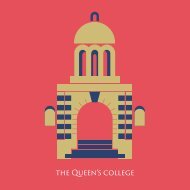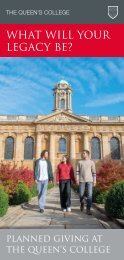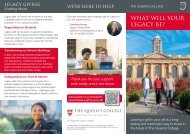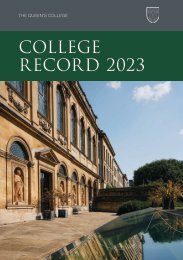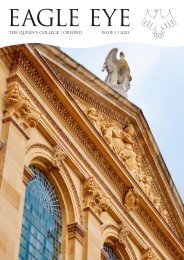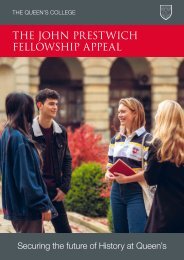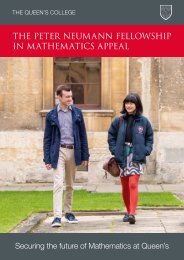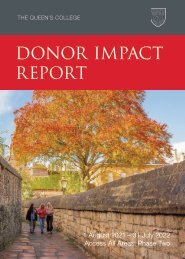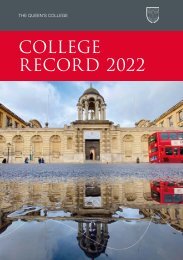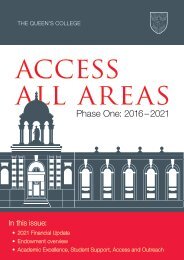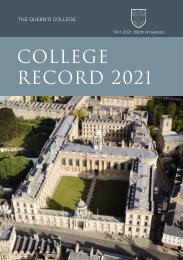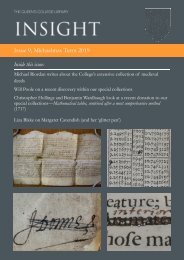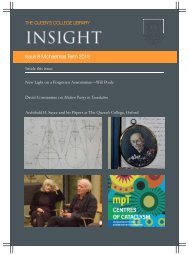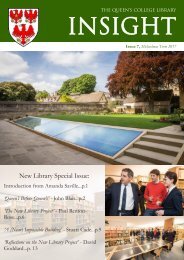The Queen's College Record 2020
Create successful ePaper yourself
Turn your PDF publications into a flip-book with our unique Google optimized e-Paper software.
Reports and <strong>College</strong> Activities<br />
NEWS FROM THE FELLOWSHIP<br />
Catharine Abell (Philosophy)<br />
Since arriving at Queen’s in September 2019, most of<br />
my research time has been spent completing a book,<br />
Fiction: A Philosophical Analysis (OUP <strong>2020</strong>). In it,<br />
I argue that fiction is an institutional social practice,<br />
and that construing it as such enables one to provide<br />
accounts of various aspects of fiction, including<br />
the determinants of fictive content and what it is to<br />
understand and to interpret a work of fiction. On the<br />
account I develop, although authors’ intentions play some role in determining the<br />
contents of works of fiction, this role is much more limited than many philosophers<br />
have taken it to be. Understanding a work of fiction deploys one’s knowledge of the<br />
content determining rules of fiction institutions, while interpreting it involves drawing<br />
inferences to the best explanation of why its author produced a work to which the<br />
rules assign those contents.<br />
Other research has concerned the evaluative role of realism in film, theatre and<br />
television productions. Realism is an artistic merit. We often consider such productions<br />
good because they are realistic. However, the view that works are better artistically the<br />
more realistic they are has controversial implications. Because non-traditional casting<br />
is often pursued at the expense of realism, it suggests that non-traditional casting is<br />
artistically unmotivated. I have written a paper arguing that the artistic norms of realism<br />
are sensitive to productions’ contents and media. Consequently, considerations of<br />
realism proscribe non-traditional casting far less often than is sometimes assumed<br />
and, in certain contexts, provide artistic motivation for it.<br />
Marta Arnaldi (Modern Languages)<br />
<strong>The</strong> first year of my Laming Research Fellowship<br />
at Queen’s started with a visit to the University of<br />
Jyväskylä, in the western part of Finland, where I<br />
took up the position of writer in residence. During<br />
this period, I delivered a course in creative writing in<br />
a foreign language (English) and gave a paper at the<br />
University’s yearly symposium on wellbeing and the<br />
arts. This visit marked the beginning of Translating<br />
Illness, the interdisciplinary research project that forms the core of my Fellowship. This<br />
two-year project consists of a programme of international collaborations (Columbia,<br />
Yale, Florence, Oslo), invited lectures (Columbia, Princeton, Central Florida), and a<br />
12 <strong>The</strong> Queen’s <strong>College</strong> | <strong>College</strong> <strong>Record</strong> <strong>2020</strong>




